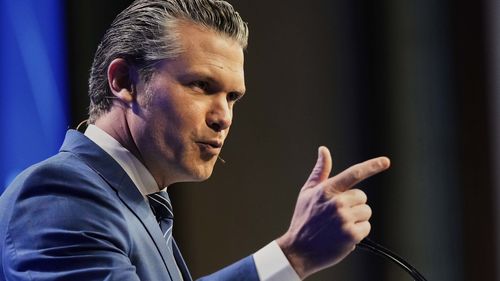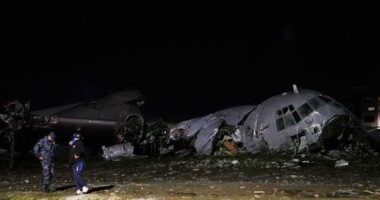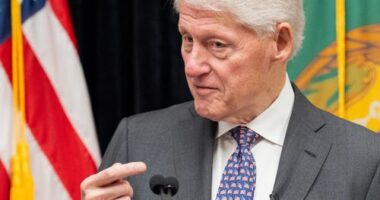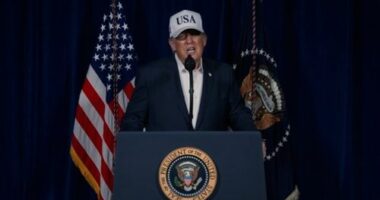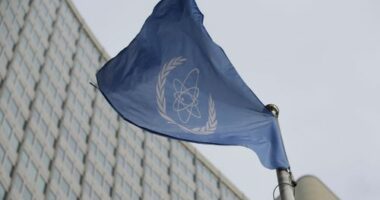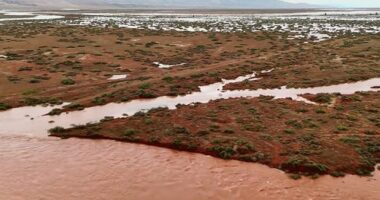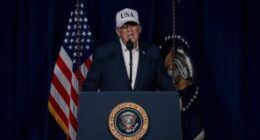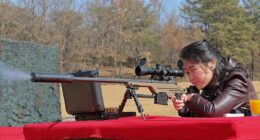Share this @internewscast.com
“There’s no need to mince words. The threat from China is genuine. And it could be imminent,” Hegseth stated during his speech at the Shangri-La Dialogue, a leading defence forum in Asia, held in Singapore on Saturday.
“Beijing is actively preparing and potentially using military force to shift the power balance in the Indo-Pacific,” with the People’s Liberation Army (PLA) consistently training for potential military action against Taiwan, Hegseth commented.

He highlighted that Chinese leader Xi Jinping has directed his military to be ready by 2027 to invade Taiwan, the democratic island with 23 million residents that the Chinese Communist Party regards as its own territory, despite never having governed it.
“The PLA is building the military needed to do it, training for it every day and rehearsing for the real deal,” Hegseth said, delivering some of his strongest comments against China since he took office in January.
China criticised the comments on Sunday.
In a statement, Beijing’s foreign ministry said Hegseth had “vilified” the country with “defamatory allegations.”
“The remarks were filled with provocations and intended to sow division,” the foreign ministry said, accusing the US of deliberately ignoring calls for peace from regional nations.

“China’s behavior towards its neighbours and the world is a wake-up call. And an urgent one,” the US defence chief said.
But he said the US cannot deter the Chinese threat alone, calling on other nations to be “force multipliers” against Beijing.
“We ask â and indeed, we insist â that our allies and partners do their part on defense,” he said.
Hegseth urged Asian countries to increase their defense spending, pointing to NATO allies who have boosted it to five per cent of gross domestic product.
“So it doesn’t make sense for countries in Europe to do that while key allies in Asia spend less on defence in the face of an even more formidable threat, not to mention North Korea,” he said.
While Hegseth made clear that Washington does not seek conflict with China, he stressed the Trump administration would not let aggression from Beijing stand.
“We will not be pushed out of this critical region, and we will not let our allies be subordinated and intimidated,” he said.
Hegseth’s speech adds to heated tensions between Washington and Beijing.
The annual Shangri-La Dialogue in Singapore has in the past been a place where defense leaders from the US and China can meet on the sidelines and foster at least a minimal dialogue between the two foes.
No such meeting is expected to take place this year.

China announced on Thursday that it would send only a low-level delegation from its National Defense University to Shangri-La, rather than its defence minister, who has spoken at the past five forums.
When the International Institute for Strategic Studies, which sponsors the event, belatedly released a speakers list for the forum on Friday afternoon, the usual 8.30am time slot for a Chinese representative to speak was scrubbed from the agenda.
At a Chinese Defense Ministry press conference on Thursday, a spokesperson ducked a question on why Beijing was not sending its defence minister to the forum.

Viewers asked to vote by text for who should get a kidney transplant
China was “open to communication at all levels between the two sides,” a ministry spokesperson said, when asked about a potential sidelines meeting with the US delegation.
Hegseth’s call for allied cooperation in deterring China is a carryover from the Biden administration, but the Trump administration seems more strident than its predecessor.
Ahead of the Singapore conference, there was broad consensus among analysts that unlike the turmoil Trump has caused in Europe â with threats to pull back from NATO and abandon Ukraine in its fight against Russia’s invasion â the US role in Asia has largely been consistent, centered on a policy to counter Chinese influence and back Taiwan.
Analysts noted that US-led military exercises, especially those involving key allies Japan, Australia, the Philippines and South Korea, have continued or even been bolstered in 2025.
